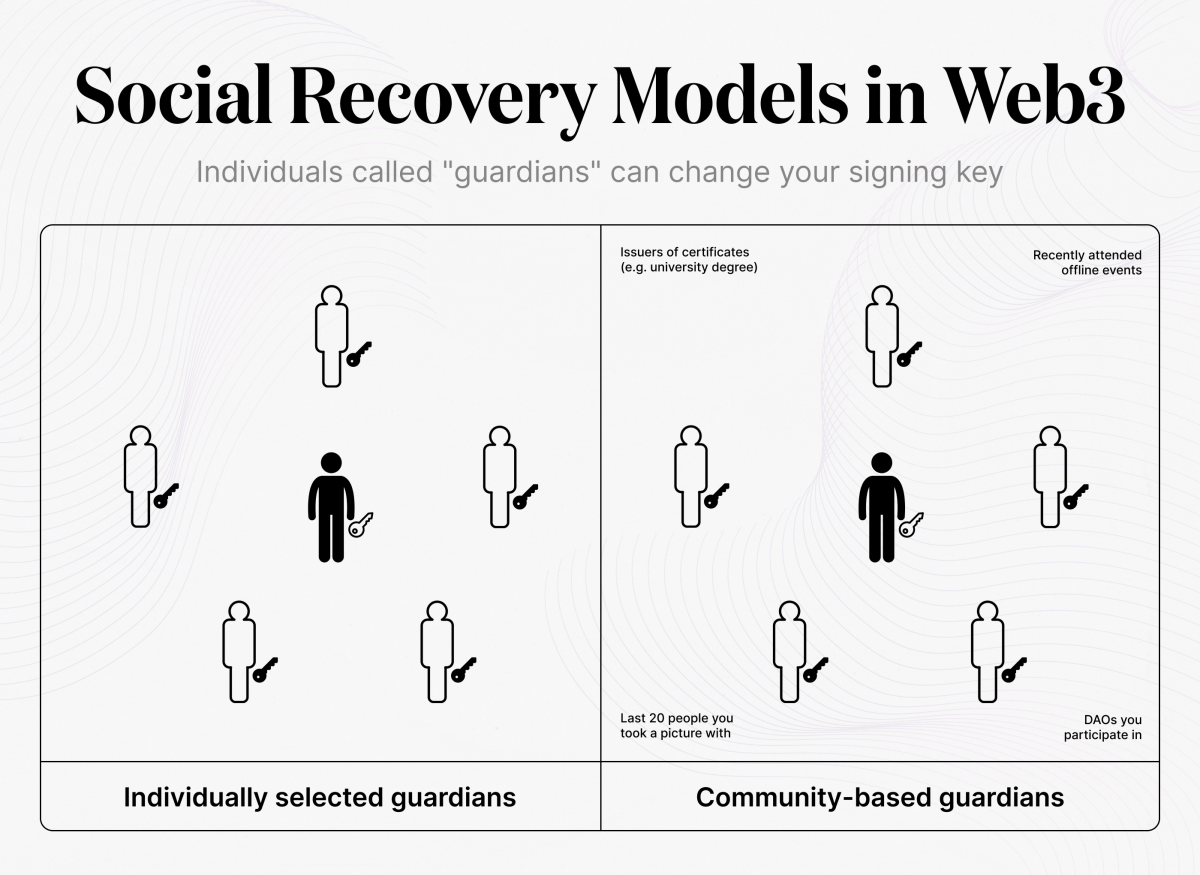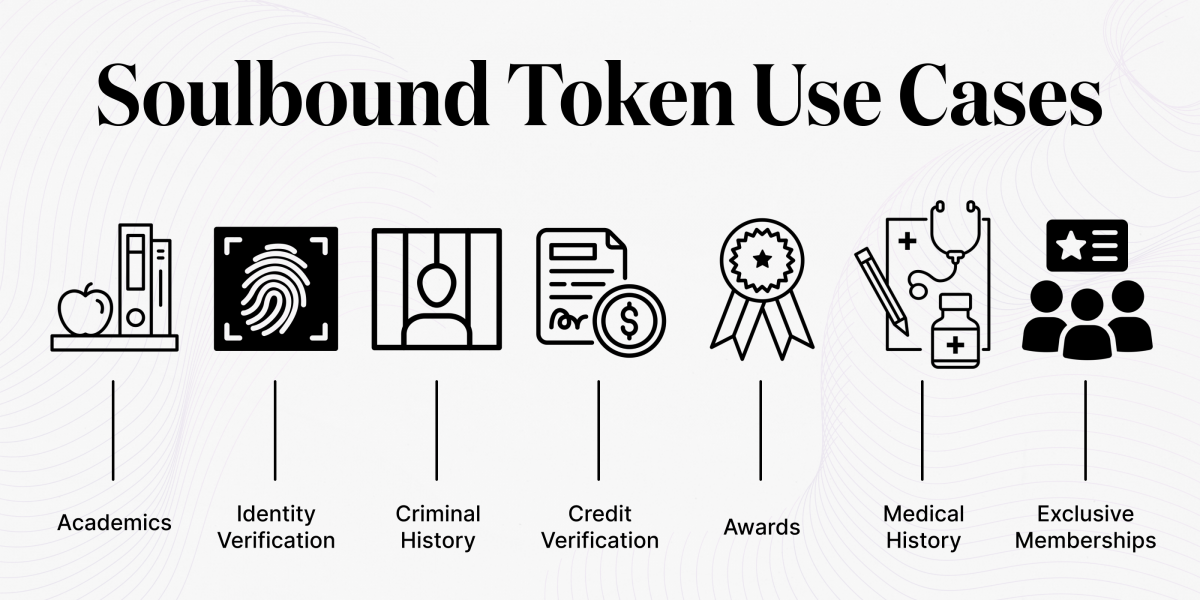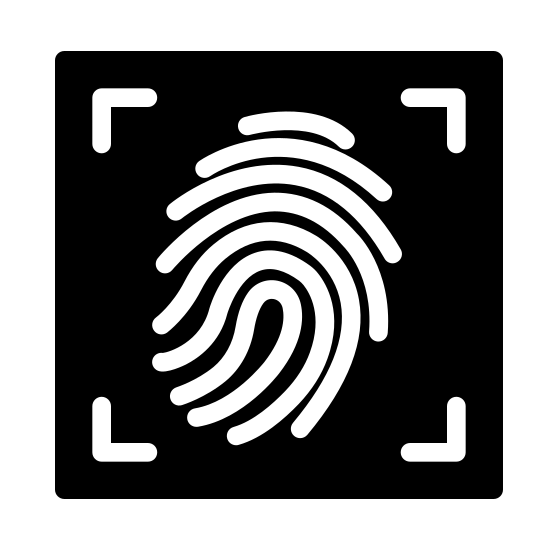Vitalik Buterin, best known as one of the co-founders of Ethereum, has a massive new Web3 project in the works. In a white paper entitled “Decentralized Society: Finding Web3’s Soul,” Buterin and his fellow authors detail their vision for a fully decentralized society (DeSoc) and how we could make it a reality. Their answer? That we will need to create something called “Soulbound Tokens” (SBTs).
In essence, SBTs are non-transferable identity and reputation tokens. They allow individuals to verify all of their information — their education, work history, credit score, medical history, professional certifications, etc. — using blockchain technologies.
The idea is extremely divisive.
Some argue that SBTs are a more streamlined and trustworthy way of verifying information. Others compare it to China’s authoritarian social credit system. Which vision is more accurate? It’s not exactly easy to say. Here, we dive deep, covering everything you need to know about the tokens that could change your life.
What are Soulbound Tokens (SBTs)?
A non-fungible token (NFT) is a digital token of information (data) that lives on the blockchain. Every NFT has its own identification code and metadata, meaning that every NFT is unique and the data it contains cannot be falsified. Regular NFTs can be sold or given away for free. In other words, they aren’t tied to one specific person or organization.
Soulbound tokens are just permanent, non-transferable NFTs, meaning that they can’t be given away or taken from your private blockchain wallet.
The concept behind Soulbound Tokens seemingly comes from the game World of Warcraft (WoW) — which also inspired Buterin, who derived the name for his beloved Ethereum blockchain from the franchise. In WoW, “soulbound” is a property of an item that prevents it from being traded or mailed to another character. With this in mind, it’s easy to see where both the name and idea for SBTs come from.
Some SBTs may act like real-life achievement badges, similar to the badges you get in a video game when you complete a specific task or make it past a set milestone. However, instead of receiving a badge for defeating a foe or saving the princess (or prince!), you get an SBT for completing a degree, earning a professional certification, winning an award, and so on. Even if it’s for something as niche as being the world’s leading expert on kickball, your corresponding SBT would serve as a way of verifying that achievement to others.
But SBTs aren’t just about achievements. They can be tied to a myriad of other traits, features, and personal information. For example, an SBT could be used to verify your name, birthday, political affiliations, charitable giving, criminal record, medical history, nationality, religious upbringing, military history, and more. The possibilities are literally endless.
The thing to remember is this: Soulbound tokens are every bit of factual information about you broken down into individual NFTs and stored in your private blockchain wallet.
How do Soulbound Tokens work?
Yes, anyone can say they went to Harvard by marking it as their alma mater on Facebook. But with SBTs, Harvard’s “Soul” (aka their private wallet) would have to grant your “Soul” (aka your private wallet) an SBT of a diploma for you to be able to effectively make that claim. In this respect, SBTs can be distributed amongst members of a group or institution as proof of affiliation. This would make it next to impossible for people to claim false credentials.
Along these same lines, Buterin and his co-authors note that, since the tokens can’t be sold or transferred from one wallet to another, they could help “solve some of the problems ravaging decentralized finance, like scams and theft.” This is where they believe the true power of the mechanism lies, as NFT thefts are becoming increasingly commonplace.
Additionally, reputation plays a huge role in how much trust community members are willing to place in an NFT artist or project. We’ve seen this time and again, such as when the Azuki collection reached record-low floor prices after it was revealed that the creator had a history of abandoning projects. With SBTs, the Web3 community will be able to check for themselves if an individual can be trusted. Thus, people will be able to make more informed decisions regarding what projects deserve their support.
However, what happens when a person or organization sends your Soul an SBT that you don’t want? SBTs are permanent, so are you stuck with them forever?
Ideally, no. For the system to work effectively, the team stated that it must include features that let individuals hide an SBT from public view or destroy it. However, since the system doesn’t exist yet, the actual mechanics of this remains unclear.
What happens if you lose your Soul?
What happens if your Soul wallet is hacked? Or what if you lose the key to your Soul address? This is, unfortunately, a very valid concern.
As previously mentioned, thefts are rampant within the NFT community. So when it comes to SBTs, it’s vital to have proper safeguards or contingency plans in place to prevent bad actors from taking identity theft to a whole new level.
In answer to this problem, Buterin proposed a community-wide adoption of something known as the “social recovery model.” With social recovery, users can appoint a set of individuals or institutions as “guardians.” These guardians have the ability to access and change the private keys of a user’s wallet, should it get compromised. With this model, the authors note that recovering a Soul’s private keys would “require a member from a qualified majority of a (random subset of) Soul’s communities to consent.”

However, this doesn’t exactly solve the issues. For example, an individual would be hard-pressed to recover stolen SBTs if the people they appointed as guardians have passed away or if the relationships have broken down. What if a group of guardians decides to gang up on a person they had a falling out with? The results could be catastrophic.
Still, by granting a wider community the ability to assist in the recovery process, Buterin believes that SBTs will be at least a little more easily retrievable upon theft.
Soulbound token use cases

Currently, the potential applications for SBTs seem unlimited. While nearly anything could be conceptualized as an SBT (or as an NFT, for that matter), official documentation may very well be the first type of content turned Soulbound.
Proof education could quickly emerge as one of the most prominent use cases for SBTs. Businesses could take a peek into someone’s Soul Wallet to verify the graduating status of an applicant, or their various certifications. Perhaps even government-issued identification could live as an SBT. Imagine something like an immutable digital passport that officials can update as citizens travel and apply for visas.


Or maybe a secure virtual wallet containing your ID, credit score, and banking information that allows financial institutions to quickly transact with their customers. Even Binance, one of the most prominent Crypto Exchanges, announced plans to issue SBTs to users as forms of credentials going forward.
As previously mentioned, SBTs can be distributed amongst members of a group or institution as proof of affiliation. Of course, this likely won’t be a regular occurrence unless Buterin’s DeSoc comes to fruition. Similar to the reasons why Binance will use Know Your Customer (KYC) standards — designed to protect institutions against fraud, corruption, money laundering, etc. to issue SBTs — both companies and consumers may find it favorable to adopt SBTs for security purposes.


Yet, not all SBTs will carry financial or official connotations. SBTs might contain a holder’s medical history, information about their exclusive memberships, a log of their awards, and so on. But other tokens may not be so beneficial for holders, since even criminal history and negative credit score impactors could easily be applied to someone’s Soul Wallet through official channels.


Sure, use cases that concern identity can feel a bit dystopian. But in an age of deep fakes, social media reality distortion, and political distrust, the ability to easily and quickly verify the accuracy of information is becoming invaluable.
What are the drawbacks to SBTs?
In addition to the ability of SBTs to represent our personal info and make it difficult for scammers to impersonate us, these tokens have other utilities. They could be used for event ticketing, exclusive airdrops (also known as “Souldrops”), and other benefits aimed at members of a specific community.
In addition to representing our personal info and making it difficult for scammers to impersonate us, the tokens have other utilities. They could be used for event ticketing, exclusive airdrops (aka “Souldrops”), and for other benefits that are aimed at members of a specific community. For example, an organization could easily send reunion tickets to all alumni who graduated during a certain period.
Of course, the opposite is also true.
SBTs could be used by bad actors to identify, target, and harm members of specific communities. The potential when it comes to governing bodies is particularly alarming. For example, holders of a specific SBT could be denied entrance to facilities, denied medical care, refused travel permits, have their voting rights revoked, and more.
The authors acknowledge this dystopian potential in the paper, writing that a database of SBTs could provide a way to “automate red-lining of disfavored social groups or even target them for cyber or physical attack, enforce restrictive migration policies, or make predatory loans.”
This is one of the reasons why the authors note that users must have a way to discard or hide their SBTs if needed.
When will SBTs be available?
While the paper’s co-author, E. Glen Weyl, originally predicted that SBTs could become available by the end of 2022 in an interview with Jason Levin, a number of nascent projects using the technology have already popped up.
Of course, this is only for “early uses” – meaning there’s still a while before we see the DeSoc Buterin described in his paper. Getting there? It’s going to be a community-wide effort.
Read More: nftnow.com









 XSGD
XSGD  zkRace
zkRace  Vertex
Vertex  Numbers Protocol
Numbers Protocol  GATSBY
GATSBY  GOUT
GOUT  ShapeShift FOX
ShapeShift FOX  BILLION•DOLLAR•CAT (Runes)
BILLION•DOLLAR•CAT (Runes)  Giko Cat
Giko Cat  OctaSpace
OctaSpace  XPR Network
XPR Network  Clore.ai
Clore.ai  Kishu Inu
Kishu Inu  GameFi.org
GameFi.org  Hoppy
Hoppy  XT.com
XT.com  BIM
BIM  Maya Protocol
Maya Protocol  PAID
PAID  cUSDC
cUSDC  Sturdy
Sturdy  Binance-Peg DAI
Binance-Peg DAI  Snowbank
Snowbank  Shardus
Shardus  Everscale
Everscale  Boson Protocol
Boson Protocol  UFO Token
UFO Token  Rifampicin
Rifampicin  DexTools
DexTools  TROY
TROY  Step Finance
Step Finance  Solv Protocol SolvBTC.CORE
Solv Protocol SolvBTC.CORE  GoGoPool ggAVAX
GoGoPool ggAVAX  Ethervista
Ethervista  A Hunters Dream
A Hunters Dream  Streamr
Streamr  Synternet
Synternet  Propchain
Propchain  FLOCK
FLOCK  Saros
Saros  AXOL
AXOL  district0x
district0x  Tranchess
Tranchess  cBAT
cBAT  CargoX
CargoX  Rich Quack
Rich Quack  Biswap
Biswap